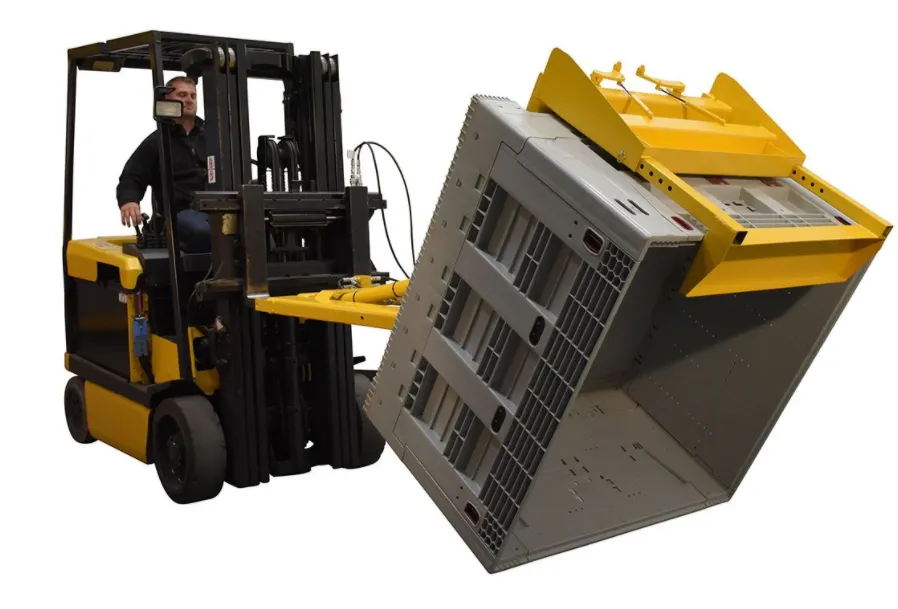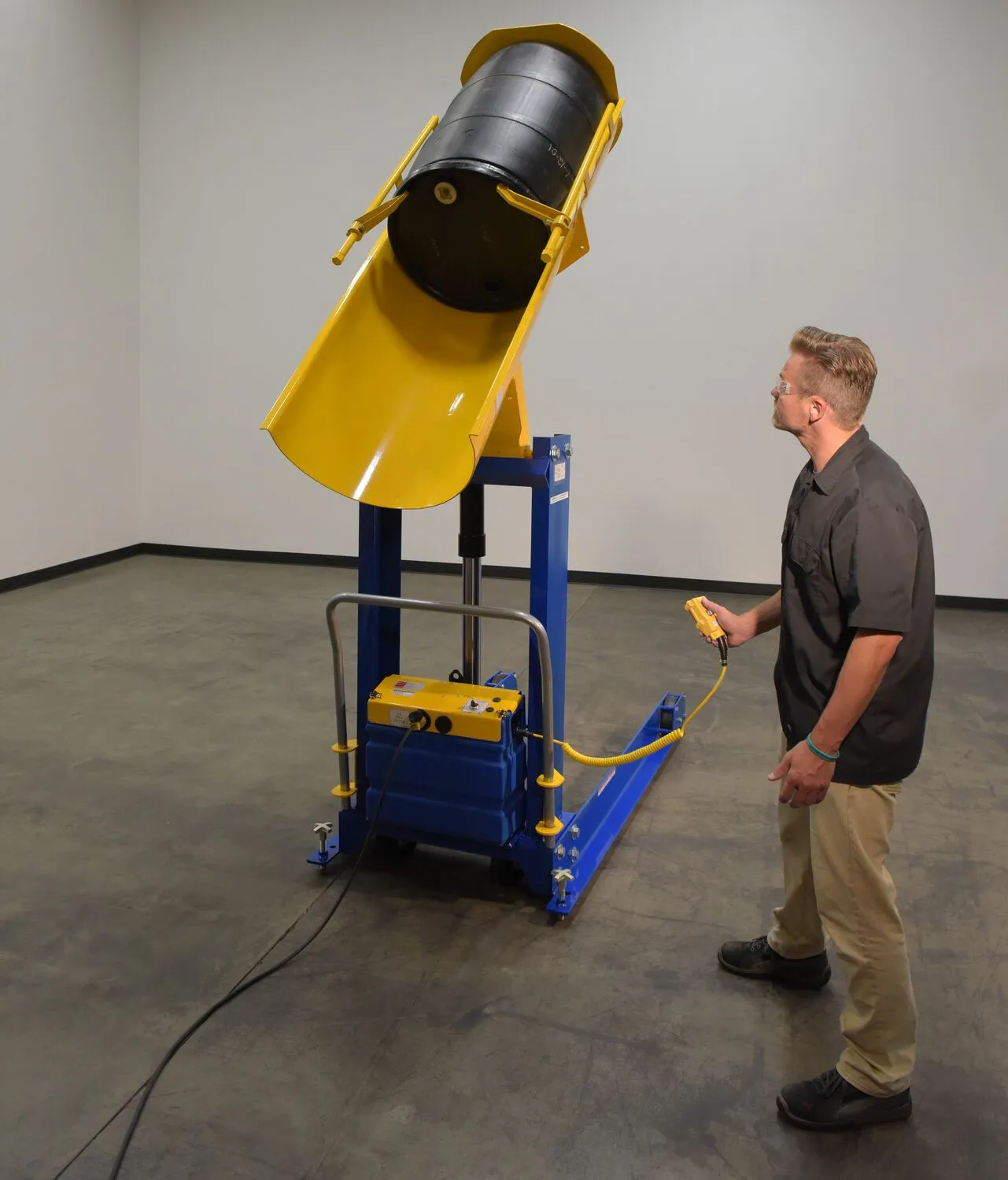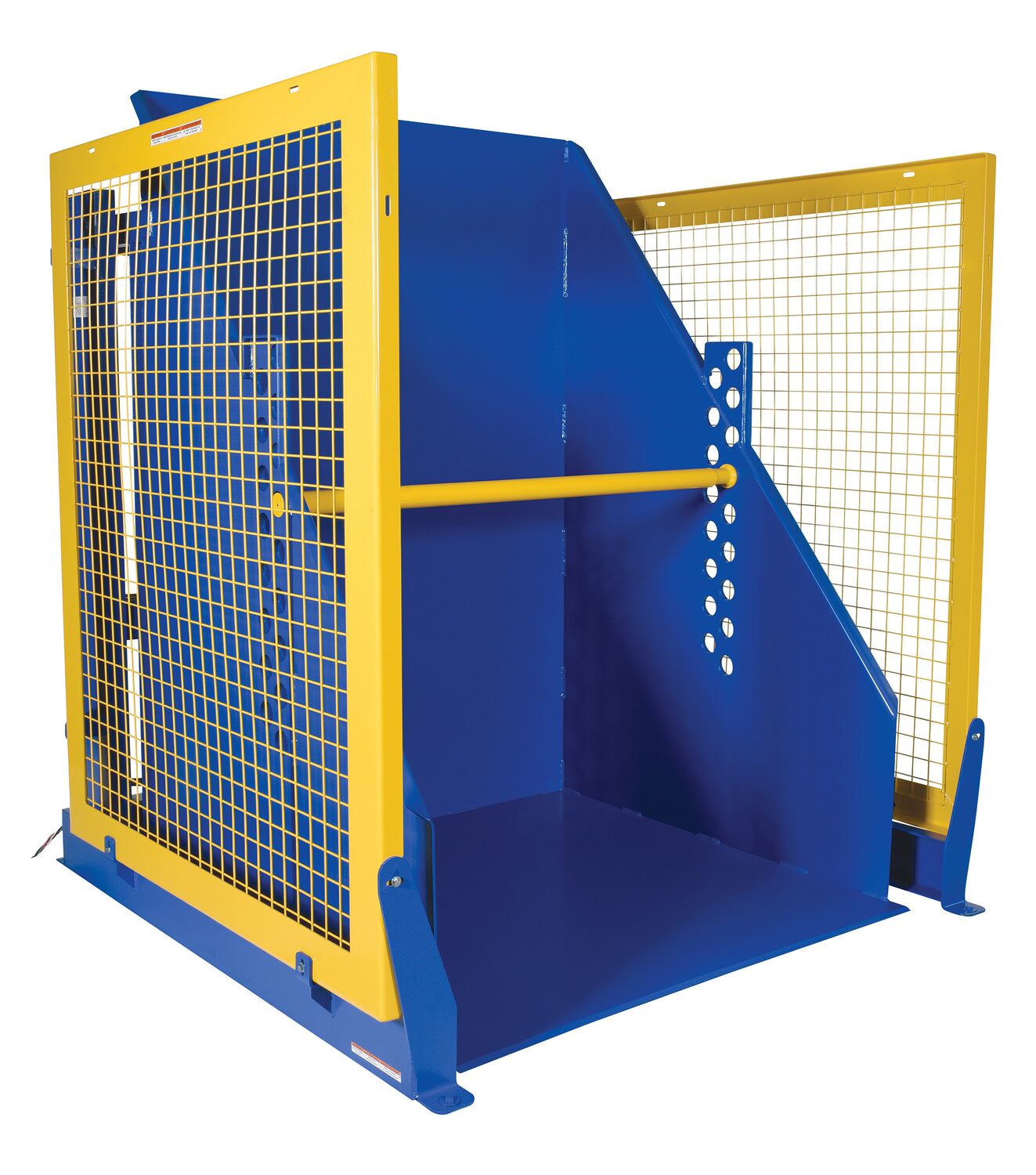Hydraulic Dumpers (3)
🔧 How They Work
-
Hydraulic System: A hydraulic pump pressurizes fluid, which powers cylinders to lift the dumper bed.
-
Controlled Tipping: Operators can easily raise, lower, and control the speed of the dump bed with precision.
-
Power Efficiency: Hydraulics allow a relatively small motor to lift very heavy loads, making them far more efficient than manual or mechanical dumpers.
🚜 Types of Hydraulic Dumpers
-
Site Dumpers – Small, wheeled machines used on job sites for moving soil, gravel, or debris.
-
Truck-Mounted Dumpers – Dump trucks that use hydraulics to raise the truck bed and dump bulk loads like sand, stone, or asphalt.
-
Skip/Hopper Dumpers – Stationary or mobile hoppers that tilt hydraulically to empty contents into another container or conveyor.
-
Industrial Drum or Bin Dumpers – Used in warehouses and factories to tip drums, bins, or containers into larger vessels or processing lines.
✅ Advantages
-
High lifting and dumping capacity
-
Reduced manual labor
-
Safer handling of heavy or awkward loads
-
Faster unloading compared to mechanical alternatives
-
Versatility in industries ranging from construction to food processing
⚠️ Considerations
-
Require regular hydraulic system maintenance (checking for leaks, fluid levels, and seals)
-
Higher upfront cost than simple mechanical dumpers
-
Need trained operators for safe use
👉 In short, a hydraulic dumper is any dumper that relies on hydraulic power to make lifting and unloading heavy materials easier, faster, and safer.
Send us a text for quick answers about your order.



